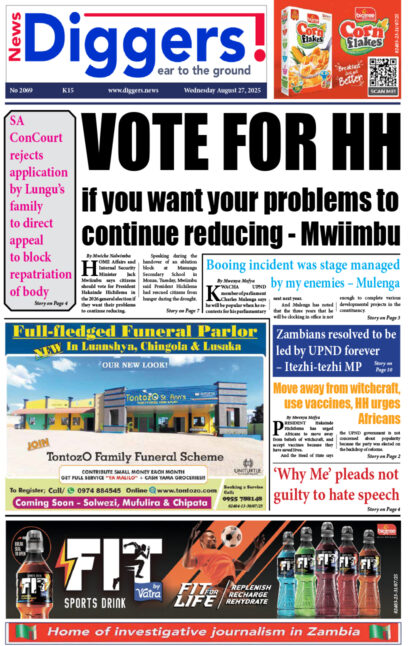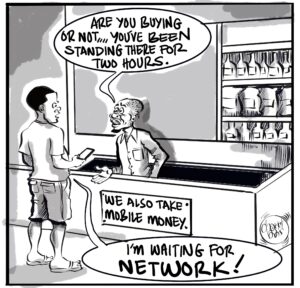COUNCIL of Churches in Zambia (CCZ) general secretary Fr Emmanuel Chikoya has asked the government, through the Zambia Revenue Authority (ZRA), to consider waiving some taxes on Churches and citizens.
In an interview, Fr Chikoya said in as much as the government had announced some measures aimed at stabilising the economy amidst the Coronavirus outbreak, there hasn’t been anything tangible targeted at an individual to ease the economic stress being experienced.
“You still have to pay utility bills; you still have to ensure that water is connected; electricity is connected and these things are not suspended by Zesco; they are not suspended by Lusaka Water and Sewerage, ZRA has not suspended taxes like Pay As You Earn. The church may be exempted, for example when they are buying utility vehicles and the other things but on other things, when they purchase, taxes still apply. We need to have a holistic approach, our government needs to seriously rethink and put measures in place [to ease problems being faced]. If you look at the Kenya scenario, the [tax exempt] threshold for Pay As You Earn has been increased, meaning that people will be less burdened and so many other things have been put in place to help people,” Fr Chikoya said.
“We also recognize the measures that have been put in place but we are looking at the individual worker. So far, I stand to be corrected, I haven’t seen something that is directly impacting the common person out there in terms of tax reduction. For example, we are still paying taxes despite the Coronavirus…for example, as Council of Churches in Zambia, there are tenants that renting [properties] from us and we had to give them a 50 per cent discount to help them survive. We are looking at our tenants but that has an implication because we have workers also to take care of.”
He further said churches were facing many challenges as they had employed workers and relief on taxes such as Pay As You Earn may assist in easing the difficulties being faced.
“Churches also employ people and these people have to be paid every month and so one feels for the churches that don’t have reserves and they are more or less hand to mouth kind…because they won’t be able to meet their obligations to their workers. Other than pastors, some churches have employed security guards; there are people that clean in the church and all these other things that are a challenge. So, one would expect similarly that there will be certain waivers from government regarding Pay As You Earn, regarding VAT and all these other taxes…so that people are able to weather the storm of these challenges,” Fr Chikoya said.
“If you check the churches, they have employees. Actually, these employees, when you delay paying ZRA the Pay As You Earn, ZRA triggers the penalty, so they are going to have more problems. If it is possible for ZRA to waive these penalties, it will mitigate these challenges as the churches face this adverse period.”
He urged church members to help their congregations by contributing through tithes and offerings to ensure sustainability as a stoppage of tithes and offerings to the churches during this time would be “a total disaster”.
“To church leaders…these are hard times and therefore, we should help the people by still providing the pastoral care. Don’t scare them into giving; encourage, motivate them and some of the people can still help because you know some workers would have be to put on forced leave but the church has to be clean and all these other things have to continue happening. To expect a 100 per cent stoppage of giving and offering to the church will be a total disaster. There are a lot of people who were dependent on the church. Actually, the church is contributing economically. There are people who are genuinely giving tithe to their churches because they understand and appreciate what is going on,” said Fr Chikoya.
“My message to the church leaders is that we must be reasonable in whatever we are doing and we must be able to understand and appreciate why people are not giving… To the members, let us not give up; let us find ways to ensure that our churches are sustainable. As we tell people to keep away, we need to think around churches and Christians going to the same shops; they buy the same fuel, they service the vehicles and all these other things. So, what I am trying to put across is that the church is still alive, the church is still there and so people should freely give.”
























